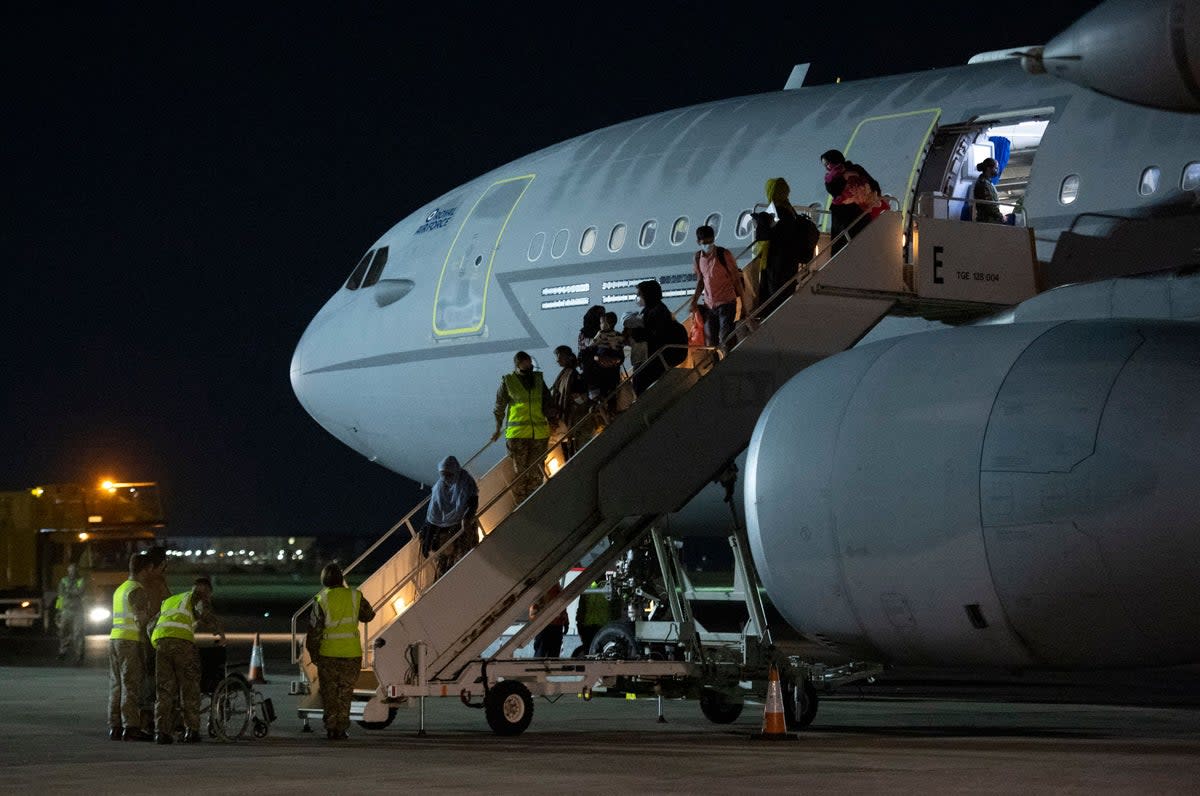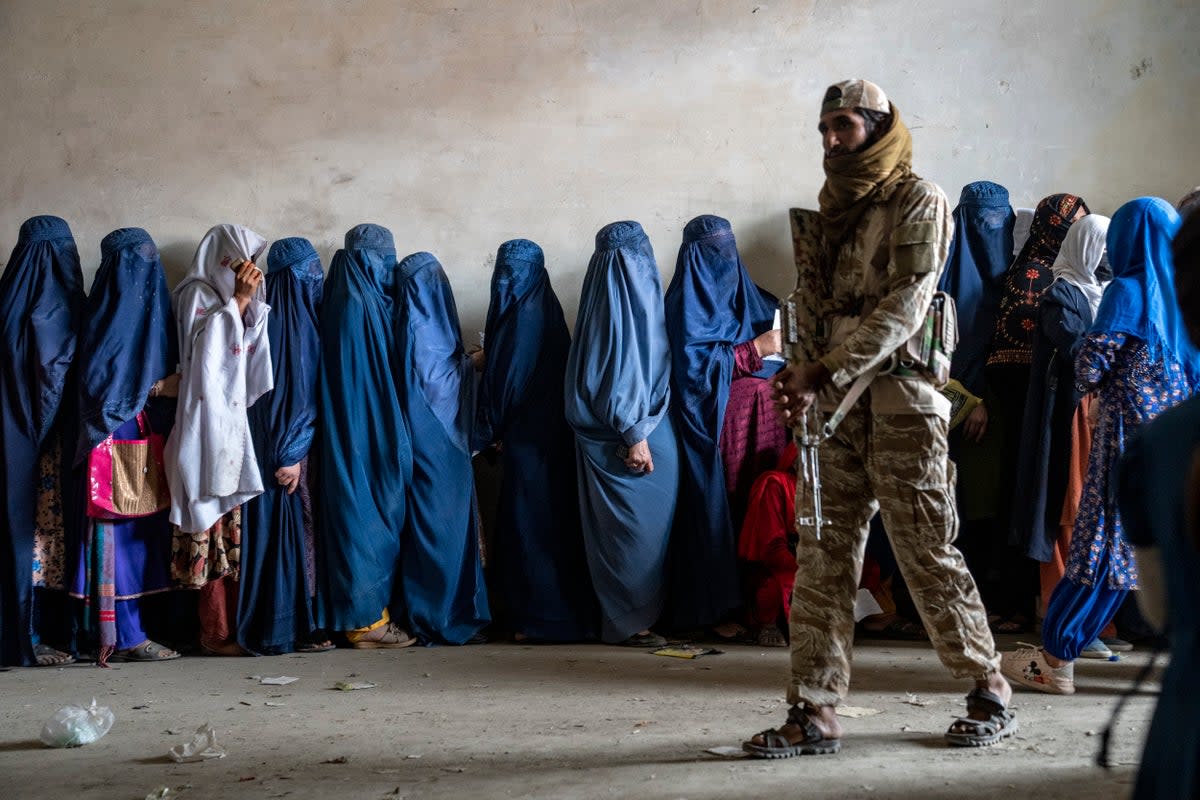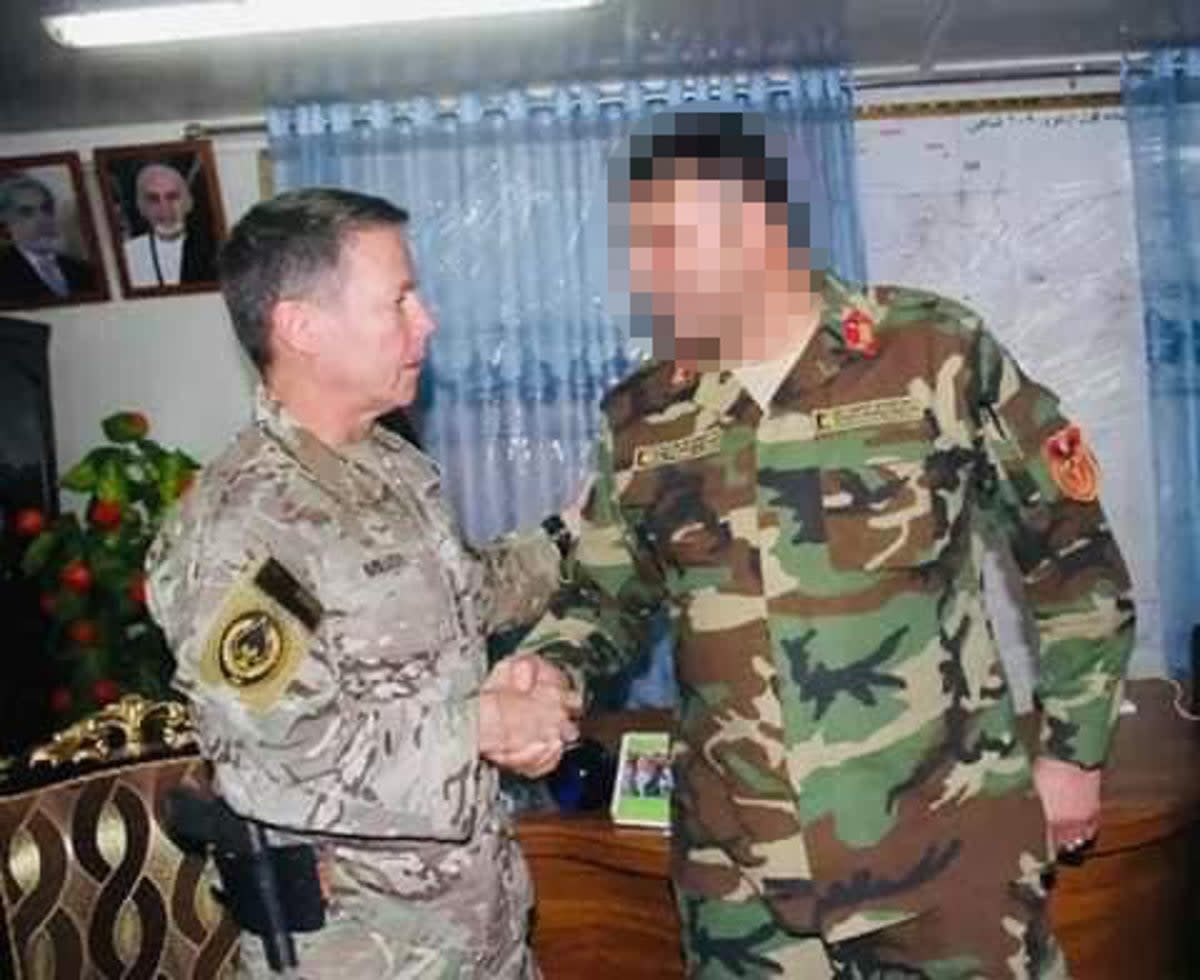Abandoned by UK: Afghans with Taliban targets on their backs denied sanctuary
Afghans who worked for the British army are being denied sanctuary in the UK despite being at risk of execution by the Taliban, an Independent investigation has found.
Mechanics, labourers and chefs are among those who have been rejected by the Ministry of Defence’s Afghan Relocations and Assistance Policy (Arap) scheme, set up for those who helped British forces during the war.
They live in fear for their lives and, despite the threat of persecution by the Taliban because of their work for the British army’s Labour Support Unit, the Ministry of Defence (MoD) argues they do not qualify for the scheme because they were not in frontline roles.
Colleagues and family members say these Afghans are at particular risk of reprisal attacks by local Taliban because they were recruited locally.

The latest refusals come as The Independent is campaigning for Afghans who worked alongside British armed forces to be given safe haven in the UK, after we revealed that an Afghan air force veteran in the UK was threatened with removal to Rwanda.
One MP said the government’s treatment of Afghan citizens who worked with British forces was a “catalogue of continued failure”, while charities called on the MoD to grant them refuge, saying they were “crucial to the UK’s mission”.
Tory MP Tobias Ellwood, chair of the defence select committee, said Afghan workers were still being hunted by the Taliban and warned the terrorists do not “share the same criteria” as the UK government’s decision-makers.
Some Afghan British army workers, who fled to the UK, have compiled a list of 44 staff who have been denied help, and their plight was raised with armed forces minister James Heappey in April by Labour MP Jessica Morden.
Mr Heappey responded, saying there were no plans to widen the Arap criteria, which he said “is already more generous than previous Afghan relocation schemes”.
One mechanic who worked for the British army was rejected by the scheme in June 2022 and is now seeking to challenge the decision in court with a judicial review. The man fixed British military troop carriers and armoured vehicles but was made redundant when British troops withdrew from Helmand Province. He later worked for NGOs and as a private military contractor for the British until the Taliban’s takeover of Kabul in 2021.

A former British army adviser, who came to the UK under Arap in 2016, told how he was trying to help this mechanic colleague: “We are trying to do our best for him and his family but he is in a very bad situation. A lot of people are being disappeared and he is all the time hiding himself because many people know that he worked with the British army.
“Lots of people in the same situation applied for Arap. I don’t know why Arap just rejected his case.”
Another former interpreter colleague, who was resettled in the UK through Arap, said the mechanic was moving from province to province, living in fear the Taliban will find him.
Stephanie Alban, the mechanic’s solicitor, said they have battled to get his case reconsidered urgently,e given his uncertain and dangerous situation. “His life is in danger so I thought they would deal with it in days and not weeks. He is in hiding and he has been moving to avoid the Taliban,” she said.
“People in the local area would know that he worked for the British. He’s on their record so they will be looking for him and targeting him. It feels like these LSU employees have just been forgotten. You shouldn’t have to do judicial reviews just to get a simple decision on a straightforward case.”

In another case, a guard who provided security at a British army camp was also rejected from the Arap scheme. In his desperate call for a review of the decision, he described how he was shot at while trying to help those injured in a terrorist attack on the base.
He said he had received a threatening letter from the Taliban, which referenced the work he did at the base, and had also received threats from Isis. He is having to move homes regularly because of repeated threats against his family.
In his review application, he wrote: “I was employed directly by the LSU office and therefore by the British government. This was a dangerous and exposed role where I was at risk of attack from Taliban and others.
“Security at the camp was vital in order to ensure the safety of the British and other Nato soldiers in the camp. As such, the camp and the military operations carried out from the camp could not have functioned without the presence of security guards like myself.”

Jamal Barrak, who worked as an interpreter with UK troops, said the Arap scheme has rejected applications from two of his uncles who worked as chefs for the British army, and who are now in hiding. The MoD said in one of its rejection letters that their “employment has not resulted in a high and imminent risk of a threat to your life”.
Mr Barrak said: “For the Taliban, it does not matter if you were an interpreter or a chef, for them we are all the same. They believe we all worked against the religion, the mentality – against the regime. If anyone has entered the military camp and worked for the British army, they are the same.”
“The defence secretary said at the time that he would make a commitment to the Afghans but unfortunately that is all lies. None of them become true.”
Another former interpreter, who came to the UK in 2015 under the Arap scheme, said the MoD has failed to help his brother who is living in fear in Afghanistan.
The pair worked together at Camp Bastion for the British army, with his brother working as a labourer inside the base for two and a half years before he was made redundant when the troops withdrew.
Describing his brother’s situation, the interpreter said: “He is in hiding and no one knows where he is. I rarely have connection with him and he will call me every so often.
“He is in the same risk as me. It is not written on his face that he was a labourer and not an interpreter. We were all working with the British army and we were all the same in the Taliban’s eyes.
“They have already killed one of our other brothers in front of our family home in 2020. He was working to help the American and British troops and they encountered him and shot him.”
Asked about the cases and the MoD’s “not in exposed” roles criteria, Tory MP Tobias Ellwood said: “I don’t believe the Taliban share the same criteria. It gained access to databases of all local Afghans who were assisting ISAF forces and local Taliban continue to hunt them down for execution. Each case should be judged on its own merit.”

Labour MP Jessica Morden, who raised the case with the defence minister on behalf of a constituent, said: “All of those brave men who risked their lives to support our armed forces at all levels in Afghanistan deserve the utmost respect – and our government should afford them that.
“Sadly, this government’s treatment of Afghan citizens who worked alongside our armed forces is a catalogue of continued failure, as these examples demonstrate.”
Baroness Jean Coussins, who was a member of the MoD’s assurance committee on locally employed civilians, said while schemes to resettle interpreters had been relatively generous, others had not been so lucky.
She added: “The interpreters are clearly a group of locally employed civilians in ‘exposed’ roles, but I would argue that many others, such as drivers, chefs, labourers, and others who worked for the armed forces or for the British Council, may also be identifiable by the Taliban and should benefit from equally generous and flexible assistance.”
Dr Sara De Jong, co-founder of charity The Sulha Alliance, which advocates for and supports Afghan former interpreters, said: “It is very concerning that Afghans directly employed by the British army in essential support roles are being denied relocation, just because they did not work as interpreters. Some have worked for the UK for over 15 years but their appeals for help are met with silence.”
She added that these Afghans were “equally crucial to the UK’s mission”. She said: “As they were often recruited locally, they are at risk due to their exposure to local Taliban.”
Sarah Fenby-Dixon, an Afghan consultant for the NGO Global Witness, said the Arap process was “leaving behind hundreds of people who worked bravely and proudly for UK forces. The Taliban do not ask for a CV; they know that these people worked with UK forces.”
A Ministry of Defence spokesperson said: “We owe a debt of gratitude to those interpreters and other staff eligible under the Arap scheme who worked for, or with, UK forces in Afghanistan in exposed roles. Our absolute priority is supporting the movement of eligible people out of Afghanistan and, to date, we have relocated over 12,200 individuals to the UK under Arap.”
